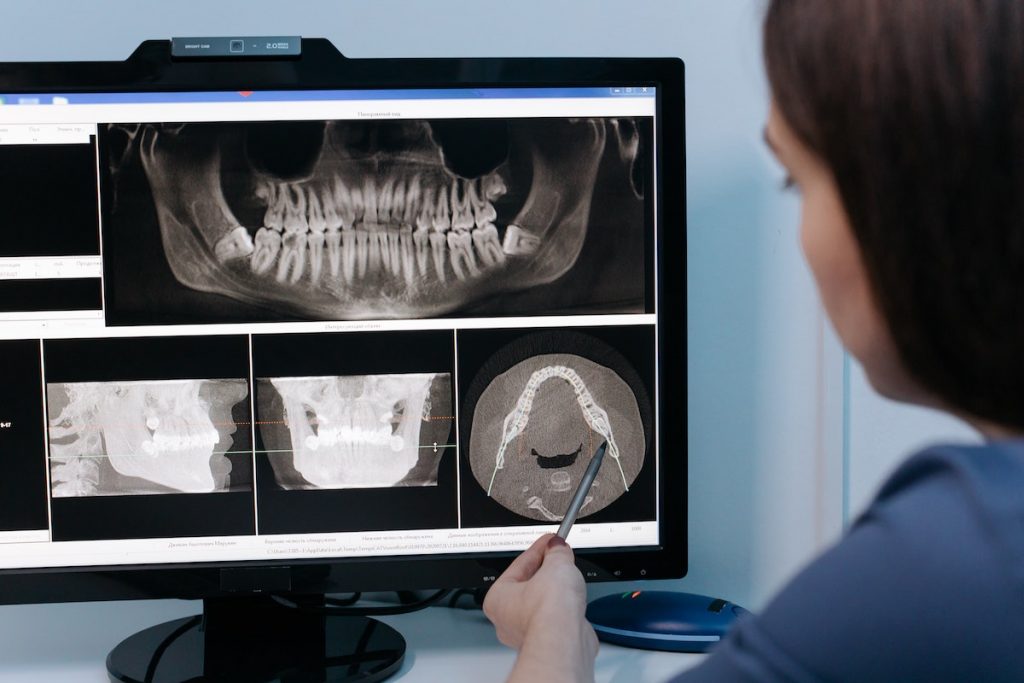Your mouth and teeth are some of the most important focal points on your face, only eclipsed by your eyes. It’s only natural that you should be aware of common mouth conditions that can affect their health and appearance. One of the most common conditions that can negatively impact not just your looks but also your well-being is the underbite.
This jaw and tooth condition can be perceived as very unsightly by many people and even cause problems to your health. Today, learn what is an underbite, what causes them and the different forms of underbite correction available to you. Don’t hesitate to contact this Dentist in las Vegas for more information on underbite treatments.
What is an Underbite?

An underbite is a dental condition that occurs when the teeth on your lower jaw project farther than the teeth on your upper jaw. This can cause people to look reminiscent to a bulldog or a piranha, depending on the severity. Simple cases can be hard to spot when your mouth is closed while more severe cases can cause the teeth to show past the lips even when the mouth is closed. Severe cases may require underbite surgery to correct.
When comparing underbites versus overbites, the only difference is which jaw the teeth are projecting out of. Aside from affecting your self-esteem, underbites and overbites can cause the following health conditions if they’re untreated and if they’re sever enough.
-
Bad Breath
The positioning of your teeth is essential in keeping your mouth closed. If your underbite is severe enough, your mouth can remain open and thus lead to dryness. Dry mouth is the perfect condition for bacterial growth, leading to halitosis or bad breath. If you want to take care of your dental health, you should seek underbite correction treatments as soon as possible.
-
Sleep Apnea
Your underbite could be costing you your good night’s rest by causing sleep apnea. This refers to potentially dangerous sleep disorder that causes your body to stop breathing. This can cause you to snore loudly and having difficulty remaining asleep during the night. Sleep apnea can make you sleepier during the day and irritable to boot.
-
TMD
The temporomandibular joint is the hinge that connects your jaw to the rest of your skull. Your underbite can skew the balance of your jaw and cause TMD or temporomandibular joint disorder. This can cause a slight popping noise when your open your mouth or even pain when you try to speak or chew. Corrective jaw surgery can be the only way to solve them.
What Causes Underbites?

There are a handful of things that can cause an underbite. Some cannot be avoided, while others can be easy to rectify. Understanding these causes can be important if you want to avoid a costly underbite surgery.
-
Genetics
The general size and shape of your bones, including teeth and jaw, are very much influenced by your parents and family. You could have developed an underbite because of certain genetic markers. Some of the most famous cases of underbites in history are the result of the Hapsburg Jaw. This genetic feature ran rampant across the royal families of Europe due to centuries of crossed bloodlines.
-
Accidents
Significant physical trauma to the face and jaw can cause deformation to the bone structure. Without significant jaw surgery, your teeth can be jostled from their usual positions. Common accidents that could cause underbites include facial trauma due to sports like boxing and vehicular accidents.
-
Habits
Some habits can be very bad for your developing body and one of them is sucking on a pacifier. According to orthodontics specialists, the repeated motion of chewing and sucking on a pacifier, combined with the more malleable tooth placement of a growing infant, can deform the teeth and lead to an underbite.
How Can You Fix an Underbite?

Thankfully, there are many forms of underbite correction available to you if you want to fix your teeth. Below are some of the most common forms of non-surgical options as well as a brief description of underbite surgery.
Learning more about your possible treatment options should help you decide on what to do regarding your underbite.
-
Braces
Underbite braces are the treatment option of choice for mild underbites. They work just like regular braces, realigning your teeth with your jaw over a few years. After they’ve been removed by an orthodontist, you may have to continue wearing a retainer afterwards to keep your teeth from straying again.
-
Facemask
This form of underbite correction uses a special facemask. This device is not like the facemask you wear as a COVID precaution. Rather, it is a medical device that connects your chin and forehead with a network of straps. It works by realigning your jaw with the rest of your skull, pushing your underbite back so that they don’t project outward.
-
Surgical Treatments
Finally, you can undergo extensive underbite surgery if your case is severe enough. Orthognathic jaw surgery is a procedure that separates your lower jaw’s back portion. While separated, the surgeon will alter it to prevent your teeth from protruding and putting your teeth in the correct position.
A more radical type of surgery, Le Fort III Osteotomy, is reserved for when your jaw is so deformed, it appears your face has sunken back. This type of underbite correction involves moving your entire face forward to realign it with your lower jaw. As typical with extensive facial surgery, full recovery and healing might take as long as 1 year although you could return to normal life within a month.
Underbites can be cause of low self-esteem and multiple health problems. Exploring its causes and possible treatments is essential if you want to get the better of this dental condition.




